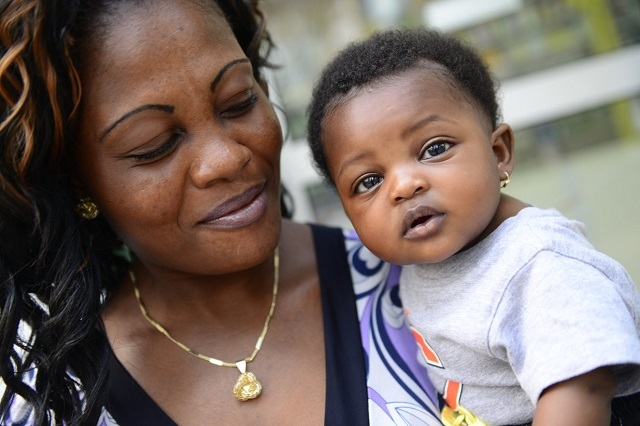Children: the innocent victims of TB in vulnerable communities
 Each year on 24 March, WHO joins the rest of the international community to commemorate World TB Day. This year’s theme “Gear Up to End TB” is a continuation of the call to reach the missing cases, most of who live in the world’s poorest and most vulnerable communities, including those in the African Region.
Each year on 24 March, WHO joins the rest of the international community to commemorate World TB Day. This year’s theme “Gear Up to End TB” is a continuation of the call to reach the missing cases, most of who live in the world’s poorest and most vulnerable communities, including those in the African Region.
Tuberculosis (TB) is one of the world’s deadliest, yet preventable, communicable diseases and remains a significant problem in the African Region. Every year, there is an estimated 9 million new TB cases worldwide but consistently 3 million cases are either not diagnosed, not treated, or are diagnosed and not registered by national TB control programmes.
These vulnerable populations include children and women, people living with HIV, people with diabetes, refugees, miners and ex-miners, prisoners and drug users whose access to basic health care services may be limited. The poor are also at risk, especially homeless persons and individuals living in densely populated communities.
Among children, there were an estimated 550 000 new cases in 2013. Children with vulnerable immune systems, such as the very young, HIV-infected or severely malnourished, are at the greatest risk of falling ill or dying from TB.
Children can get TB at any age, but the most common age is between one and four years. The source of infection is often an infectious adult that is in a child’s close environment. A TB infected adult often lives in vulnerable communities such as migrants, miners, prisoners, drug users and sex workers whose access to basic health care services may be limited.
“Any child living in a setting where there are people with infectious TB can become ill with TB, even if they are vaccinated. If infected, TB is often missed or overlooked due to non-specific symptoms and difficulties in accurately diagnosing the condition. This highlights the urgent need to strengthen health systems to be able to manage TB and it’s other associated health conditions,” said Dr. Matshidiso Moeti, WHO Regional Director for Africa.
The HIV pandemic also threatens TB control efforts, particularly in sub-Saharan Africa. Wherever children are at risk of HIV infection, the HIV-infected children are at risk of TB. Overall, 34% of TB cases are estimated to be co-infected with HIV in the African Region. In parts of southern Africa, more than 50% of TB cases are co-infected with HIV.
TB is a treatable and curable disease. Active, drug-sensitive TB is treated with a standard six-month regimen of four antimicrobial drugs that are provided with information, supervision and support by a qualified health care worker or trained volunteer.
There has been continued progress in the implementation of collaborative TB/HIV activities but intensified efforts are needed, especially to ensure universal access to antiretroviral therapy (ART). In 2013, 70% of TB patients known to be HIV-positive were on ART. This level, however, falls short of the 100% target set for 2015.
As a minimum, all HIV-infected children should be screened for TB and all children with TB should be offered HIV testing and counselling in high HIV prevalence settings. Irrespective of age, all HIV-infected children who are household contacts of infectious TB cases should be evaluated for TB disease and treated.
For the first time in four decades, new TB drugs are starting to emerge from the pipeline, and combination regimens that include new compounds are being tested in clinical trials, but the funding required to rapidly evaluate whether these treatments are effective and ready for implementation is far from adequate.
The end of 2015 marks a transition from the Millennium Development Goals (MDGs) to a post-2015 development framework. Within this broader context, WHO has developed a post-2015 global TB strategy (the End TB Strategy) that was approved by all Member States at the May 2014 World Health Assembly.
_______________________________________________
For more information, please contact:
Technical contact:
Dr Daniel Kibuga
Tel: +47 241 39799
Email: kibugad [at] who.int
Media contacts:
Dr Cory Couillard
Tel: + 472 413 9995
Email: couillardc [at] who.int
Collins Boakye-Agyemang
Tel: + 472 413 9420
Email: boakyeagyemangc [at] who.int


